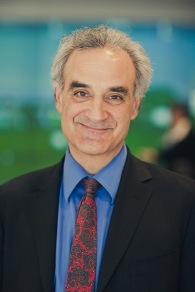Healthy Climate, Healthy People
As we continue to learn more about climate change, we are realizing that it is fundamentally a health issue that will effect everyone in the world. How it is damaging to our health depends on where we live. If we live in Beijing or Baton Rouge, climate change looks like air that's so poisoned we can't go outside of our homes. If we live in the Midwest of the United States, climate change looks like extreme weather that rages through our communities and heat waves that destroy our crops and cause heat exhaustion. If we live in New York or New Orleans, climate change looks like massive hurricanes, which flood our streets, trap us in homes with no power and shut down our hospitals. For many communities living downwind from coal power plants, climate change looks like increased asthma in our children and respiratory disease in our most vulnerable citizens. We are learning that climate change will also lead to the spread of infectious diseases like Dengue fever and malaria, which are spreading by mosquitoes to places that have never seen these diseases before. We are learning that it is not possible to have healthy people on a sick planet.
That is why, In this unfolding crisis, the healthcare sector has a unique responsibility to lead the fight against climate change.
First, we need to get better prepared for climate change impacts in our communities. Our hospitals and clinics need to be resilient and fortified so they can anchor the community response during extreme weather events. They need to be the last buildings standing in a hurricane rather than one of the first to go down. If hospitals have on-site power, they can continue to provide critical care to patients even if the grid is down for days. The good news is that development of on-site power also gives hospitals an incentive to become more energy efficient, reduces Greenhouse gas emissions and saves the hospitals money.
Second, healthcare is just as addicted to fossil fuels as the rest of us, and even more so. Hospitals use twice as much energy per square foot as our schools and offices because of all the life saving equipment they operate 24/7. Hospitals are major carbon polluters. Given that healthcare is underpinned by an ethical imperative to 'First, Do No Harm", they have a responsibility to reduce their carbon pollution and lead our society toward renewable energy, more energy efficient products, more local and sustainable food systems, safer chemicals and other carbon mitigation efforts that support healthier people in healthier communities.
Healthcare represents 18% of our entire economy and is growing with the implementation of the Affordable Care Act. If we can harness the purchasing power of this critical wedge sector, we can drive our entire economy toward a low carbon development path that will simultaneously reduce our rising disease burden and spiraling healthcare costs. Toward this end, we have built a global coalition for Healthier Hospitals that is accelerating the adoption of sustainable and climate friendly practices and saving hospitals money in the process.
Gary Cohen is the President and Founder of Health Care Without Harm.

